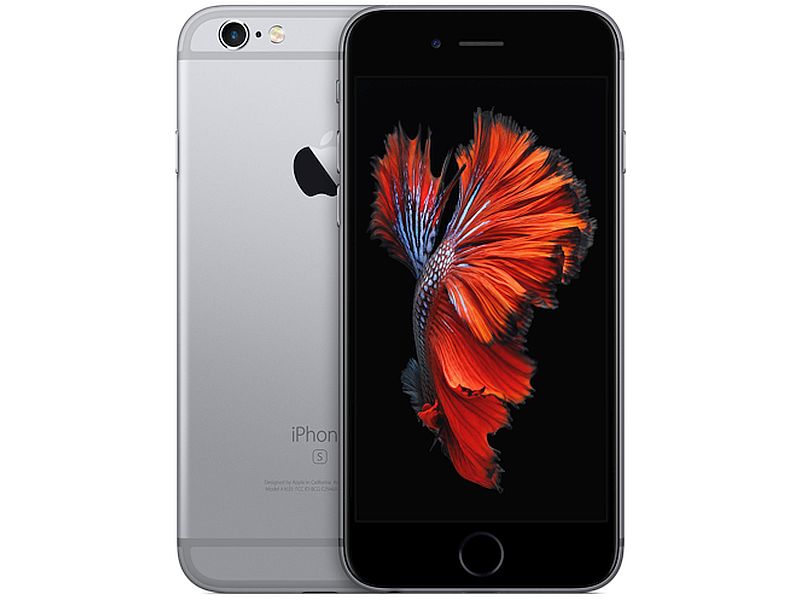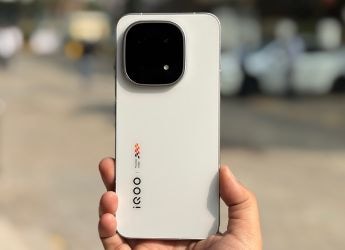- Home
- Mobiles
- Mobiles News
- iPhone 6s Battery Life Differs Between Samsung, TSMC A9 Models: Reports
iPhone 6s Battery Life Differs Between Samsung, TSMC A9 Models: Reports

Apple however has defended its A9 chips manufactured by Samsung and TSMC claiming that both the chips "vary within just 2-3 percent of each other."
The news that A9 chips in the new iPhones were shipped by two different companies was first reported by Chipworks, pointing out that the TSMC chip is built on a 16nm process, and the Samsung chip is built on the 14nm process. Despite the 14nm process being expected to yield better efficiency, it turns out this may not be the case. YouTube videos by Austin Evans and Jonathan Morrison in limited tests showed the Samsung-powered iPhone 6s delivering worse battery life.
Jonathan Morrison performed some tests including shooting at 4K resolution, exporting the 4K video in iMovie, and also ran some benchmark tests. In Morrison's video, iPhone 6s with TSMC chips had 62 percent after all the tests were done. While the one with Samsung chip was at 55 percent. To note that all the tests were performed when iPhone 6s was at 100 percent battery.
Austin Evans, on the other hand, had a different approach towards the tests with iPhone 6s. Evans ran a battery test on the two iPhone 6s models powered by Samsung A9 and TSMC A9 chips, checking which phone drained fast to reach 50 percent mark. According to the results, the TSMC powered iPhone 6s lasted 50 minutes longer than the one powered by Samsung chip. He also played a one-hour-long streaming video on the both the models and saw a marginal difference of 1 percent.
After checking both the tests however, we can say that the real world results might be marginal.
Apple in a statement to TechCrunch has also defended the chips and said, "Certain manufactured lab tests which run the processors with a continuous heavy workload until the battery depletes are not representative of real-world usage, since they spend an unrealistic amount of time at the highest CPU performance state. It's a misleading way to measure real-world battery life. Our testing and customer data show the actual battery life of the iPhone 6s and iPhone 6s Plus, even taking into account variable component differences, vary within just 2-3 percent of each other."
It's worth noting that both the videos showed YouTubers using a Lirum app to check the A9 chip manufacturer. The developer of the Lirum app, Lirum Labs Tecnologia, on Thursday pulled its app from App Store claiming that there are some "some serious issues" with its app. It said in Facebook post, "We are aware of some serious issues or our Apps with the latest iOS models (iPhone 6s and iPad Air 2). Changes on the requirements for a new update to be approved are also delaying the development process (and our team is very small). In face of such events, in 24 hours, we will take Lirum Device Info down from the App Store - until we can release a decent update. That will take a few months however - but then we promise an entire new user interface, faster updates when a new device model is released, and a lot of new features."
Soon after Apple started shipping its iPhone 6s and iPhone 6s Plus, users reported various issues including Touch ID getting heated alongside incidents of iPhones abruptly switching off and other complains about speakers, and volume controls. Despite several users reporting about certain issues in the iPhone 6s and iPhone 6s Plus, Apple claimed record weekend sales with over 13 million new iPhone units sold topping last year's 10 million units sold during the opening weekend.
Catch the latest from the Consumer Electronics Show on Gadgets 360, at our CES 2026 hub.
Related Stories
- Samsung Galaxy Unpacked 2025
- ChatGPT
- Redmi Note 14 Pro+
- iPhone 16
- Apple Vision Pro
- Oneplus 12
- OnePlus Nord CE 3 Lite 5G
- iPhone 13
- Xiaomi 14 Pro
- Oppo Find N3
- Tecno Spark Go (2023)
- Realme V30
- Best Phones Under 25000
- Samsung Galaxy S24 Series
- Cryptocurrency
- iQoo 12
- Samsung Galaxy S24 Ultra
- Giottus
- Samsung Galaxy Z Flip 5
- Apple 'Scary Fast'
- Housefull 5
- GoPro Hero 12 Black Review
- Invincible Season 2
- JioGlass
- HD Ready TV
- Laptop Under 50000
- Smartwatch Under 10000
- Latest Mobile Phones
- Compare Phones
- OnePlus Turbo 6V
- OnePlus Turbo 6
- Itel Zeno 20 Max
- OPPO Reno 15 Pro Mini 5G
- Poco M8 Pro 5G
- Motorola Signature
- Vivo Y50e 5G
- Vivo Y50s 5G
- Lenovo Yoga Slim 7x (2025)
- Lenovo Yoga Slim 7a
- Realme Pad 3
- OPPO Pad Air 5
- Xiaomi Watch 5
- Huawei Watch 10th Anniversary Edition
- Acerpure Nitro Z Series 100-inch QLED TV
- Samsung 43 Inch LED Ultra HD (4K) Smart TV (UA43UE81AFULXL)
- Asus ROG Ally
- Nintendo Switch Lite
- Haier 1.6 Ton 5 Star Inverter Split AC (HSU19G-MZAID5BN-INV)
- Haier 1.6 Ton 5 Star Inverter Split AC (HSU19G-MZAIM5BN-INV)


















